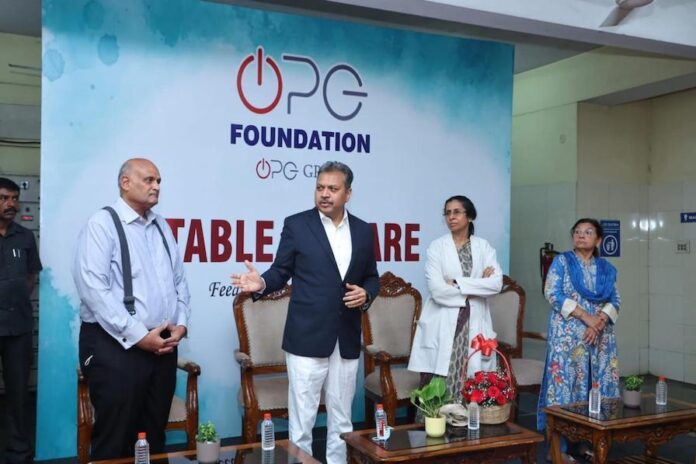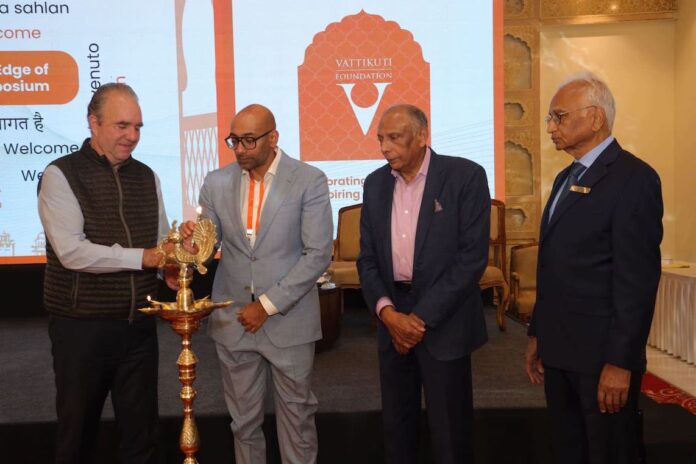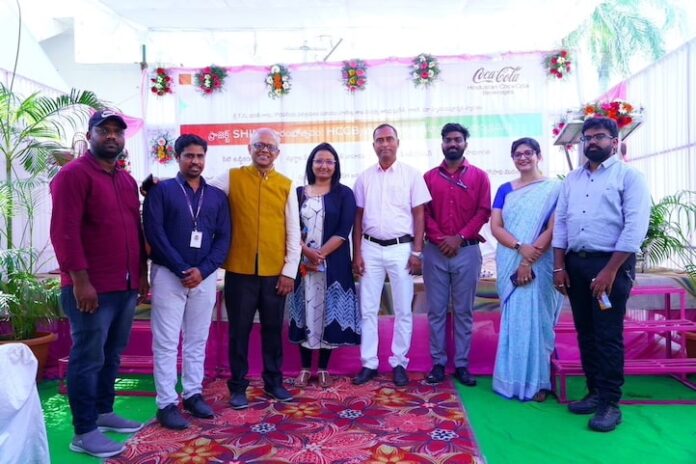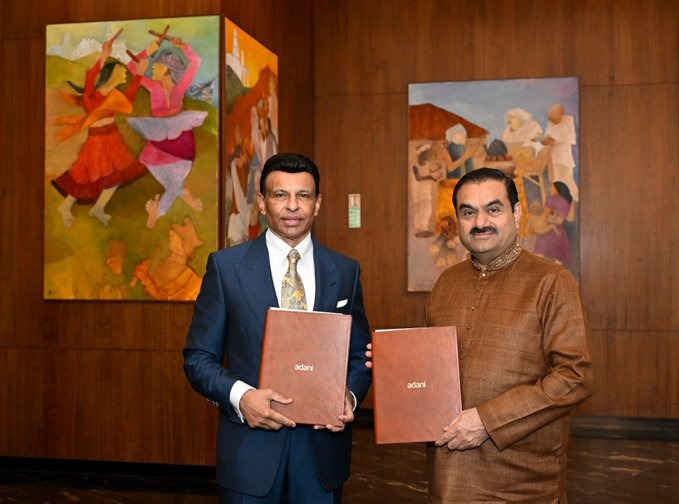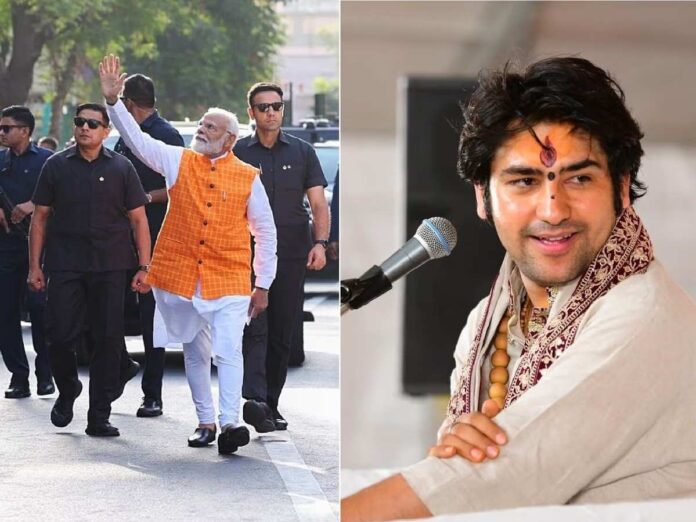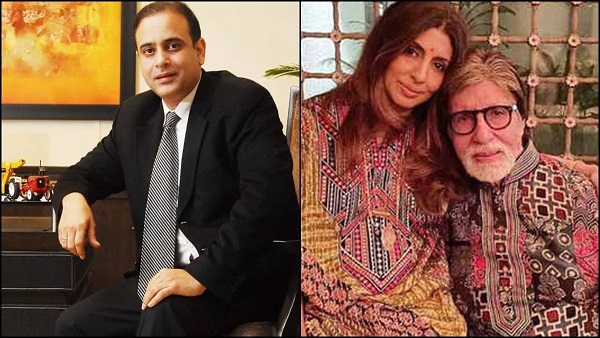Student’s suicide at KIIT, Nepali students forced to vacate campus, one in police custody
More than 500 Nepali students were forced to leave Kalinga Institute of Industrial Technology (KIIT) in Bhubaneswar amid tensions following the alleged suicide of a female student on Monday. The deceased Prakriti Lamsal, a 20-year-old student hailed from Nepal. The third year B-Tech student was found hanging from the ceiling fan of her hostel room on Sunday evening, following which the university campus witnessed massive protests by students.
Nepali students were seen leaving the KIIT campus and rushing to the nearest Cuttack railway station, which is 30 km from the institute. Several students were left stranded at the railway station due to last minute rush and unavailability of train tickets to return home.
The university said it asked the students from Nepal to go back home, after which two buses full of Nepali students were dropped at the Cuttack Railway Station on Tuesday morning.
The police have appealed to the students to maintain peace after their protests sparked tension on the campus last night. Two platoons of police personnel have been deployed to maintain law and order at the campus.
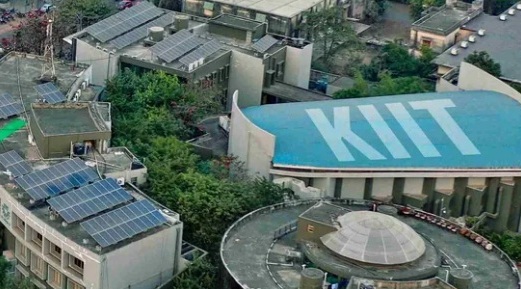
Abetment to suicide against rumoured boyfriend
Pinak Mishra, Deputy Commissioner of Police, Bhubaneswar has stated that the police have lodged a case on the allegation that a male student abated her suicide. “The accused student is in police custody and subjected to interrogation. The police have seized the mobile phone, laptop, and other gadgets of the deceased woman. We are undertaking a scientific investigation into the matter,” the DCP said.
The deceased students’ friends and classmates have alleged that the victim was being harassed by a boy named Advik Srivastava for several months. Even though she reported the matter to the university’s International Relations seeking help, no help came alleged her classmates.
Nepali students asked to vacate campus
Following the incident, Nepali students of the university demanded a thorough investigation and arrest of the accused. As tension escalated, the university issued a notice asking all Nepali students to vacate the campus. The statement read, “The University is closed for all international students from Nepal. They are hereby directed to vacate the university campus today, February 17.”
Statement issued by KIIT
Meanwhile, a statement issued by the KIIT about the incident hints about a love affair between the deceased and a male student of the same university. The male student has been charged with abetment to suicide by the police. The accused student is in police custody.
The statement issued by KIIT regarding the death of the student reads, “A Nepali student studying in the third year of B-Tech committed suicide in the hostel yesterday. It is suspected that the student was in a love affair with another student studying at KIIT. It is suspected that the student may have committed suicide due to some reason.”
CSR News: ‘Table of Care’ program Launched at Adyar Cancer Hospital
In a significant step towards community welfare, OPG Foundation, part of OPG Group, India’s leading power generator, has launched a free meal distribution program at The Cancer Institute WIA, Adyar, Chennai. This initiative is part of the company’s Corporate Social Responsibility (CSR) under its flagship program ‘Table of Care’, led by the OPG Foundation, the social impact arm of OPG Group.
The launch event was graced by Hon’ble Justice AD Jagadish Chandra, Judge, Madras High Court, as the Chief Guest, who lauded the initiative and its positive impact on the community.
The Cancer Institute (WIA), established in 1954, is one of India’s premier oncology centers dedicated to providing high-quality, affordable cancer care. With a strong focus on research, early detection, and treatment, the institute has been at the forefront of cancer care in India. It offers comprehensive services, including chemotherapy, radiotherapy, and surgical oncology, while also emphasizing patient welfare through various support programs.
The program underscores OPG Foundation’s commitment to addressing societal needs and supporting those facing challenging circumstances. The meals, carefully prepared to meet nutritional standards, will be distributed free of charge at a dedicated counter within the hospital premises.
Speaking about the initiative, Mrs. Sudha Gupta of OPG Foundation said: “At OPG Foundation, we believe that no one should go hungry, especially those going through challenging times. The ‘Table of Care’ led by the OPG Foundation is our way of standing by families who are facing emotional and financial distress. Providing nutritious meals is a small yet meaningful way to offer comfort and support when it’s needed most. We remain committed to expanding our social impact efforts and finding more ways to give back to the community.”
This marks the fifth free meal programme by OPG Foundation. Currently, the company operates four meal distribution centers in and around its facility in Gummidipoondi, serving nearly 700 meals daily. Over the past three years, the ‘Table of Care’ initiative has benefited nearly three lakh people.
Director of Cancer Institute, expressed gratitude for the program, stating: “The families of our patients often endure emotional and financial stress during their hospital visits. This thoughtful initiative by OPG Foundation will go a long way in providing comfort and support to these individuals. We are grateful for this collaboration and applaud their dedication to social responsibility.”
The free meal distribution programme is designed to run seamlessly with the support of a dedicated team of volunteers and hospital staff, ensuring that every individual in need receives timely and hygienic meals.
Disclaimer: This media release is auto-generated. The CSR Journal is not responsible for the content.
CSR News: NGO ‘Vattikuti Foundation’ Hosts ‘Humans at the Cutting Edge of Robotic Surgery’ Symposium in Jaipur
The Vattikuti Foundation, a robotic surgery champion, has convened over 200 robotic surgeons, technology experts, and healthcare professionals worldwide for the two-day “Humans at the Cutting Edge of Robotic Surgery” symposium in Jaipur. Leading surgeons from Australia, Belgium, France, India, Italy, Japan, Spain, the UK and the USA are discussing AI-driven surgical advancements, digital patient experiences, and the evolving role of robotics in complex procedures.
On the 14th, a technology session moderated by Dr Anthony Costello from Royal Melbourne Hospital, Australia set the stage for discussions on AI, digital surgery, and future surgical training. Subsequent sessions explored AI’s role in predicting surgical outcomes, 3D-augmented reality and biodigital twins. Experts from Cedars-Sinai Medical Center, Politecnico di Milano, and Queen Mary University of London led discussions on AI and data science reshaping surgical precision and patient care.
A key segment, “Revolutionizing Surgery Through Data Science” focused on AI-driven insights and next-generation clinical models. Moderated by Dr Francesco Porpiglia from San Luigi Gonzaga Hospital, Italy, and Dr Andrew Hung from Cedars-Sinai Medical Center, the session highlighted AI’s potential in clinical decision-making.
Dr. Mahendra Bhandari, CEO of Vattikuti Foundation said, “Robotic surgery is not just a technological advancement; it’s a paradigm shift in healthcare. The integration of AI, real-time augmented reality, and data-driven decision-making is leading to safer, more efficient surgeries. The discussions at this symposium reflect the global momentum toward AI-assisted surgical precision and accessibility.”
The Vattikuti Explorers, a group of 20 medical students from eight countries, are engaging in unique learning experiences. Their “Innovators Challenge” session showcases AI-driven methods to enhance anatomy education beyond traditional approaches.
On February 15, the symposium shifted discussions to clinical applications. The day opens with a session on Urinary Bladder Surgery, moderated by experts from Medanta Hospital and Kokilaben Dhirubhai Ambani Hospital. Discussions will cover robotic procedures in bowel surgery, thoracic, gynecologic, and hepato-pancreato-biliary surgeries. Ground-breaking work in robotic kidney transplantation in children and robot-assisted transvesical prostatectomy will also be highlighted. Surgeons from eminent institutes like Emory University, Mayo Clinic and ORSI Academy will participate in discussions with Indian experts from institutes like PGIMER, JIPMER, Max, Aster, Ruby Hall and Manipal Hospitals.
A key highlight is “Maximally Invasive Surgery, Minimally Invasive Way”. This session will showcase revolutionary robotic pelvic surgery techniques. The event will conclude with insights into the future of robotic surgery, surgical data science, and upcoming innovations.
Medtech industry leaders, including Medtronic and CMR Surgical, will present on robotics-driven surgical advancements.
Disclaimer: This media release is auto-generated. The CSR Journal is not responsible for the content.
CSR News: Community development initiatives Launched in Kurnool, Andhra Pradesh with water filtration units, Anganwadi renovations, and skill building programs
Hindustan Coca-Cola Beverages (HCCB), one of India’s leading FMCG companies, has launched a series of community initiatives in Kurnool, Andhra Pradesh, under its comprehensive CSR program: Project SHINE. These include implementation of sales and marketing training for youth, installation of water filtration units, electric vehicles (EVs) for waste collection, and Water Access, Sanitation, & Hygiene (WASH) programs. Shri. T. G. Bharath, Hon’ble Minister of Industries & Commerce, Government of Andhra Pradesh, inaugurated these initiatives in the presence of Shri P. Ranjit Basha, IAS, District Collector, Kurnool, local officials, community members and beneficiaries at an event held in Kurnool.
HCCB is investing in Kurnool’s future, bridging the skill gap by providing youth with sales and marketing training at nine colleges to improve employability and career prospects. These programs are tailored to meet the diverse needs and proficiency levels of young people from various backgrounds, ensuring active and practical learning. Opening doors to financial and economic inclusion, HCCB is also conducting Digital and Financial Literacy training for local women Self-Help Groups in Kurnool. This initiative empowers them to access and utilize essential digital financial services. Beyond training, the company also provides vital tools like sewing machines, empowering women to stitch their own path to economic independence.
As part of its WASH initiative, HCCB has installed water filtration units at the Government General Hospital, Kurnool, providing easy access to clean drinking water. The company is also conducting WASH sessions in schools and communities covering essential topics such as personal hygiene, proper handwashing techniques, good sanitation practices, adolescence, and the prevention of communicable diseases. HCCB has also donated electric vehicles (EVs) for waste collection to the Kurnool Municipal Corporation, supporting efficient urban waste management.
Commenting on the CSR initiatives, Shri. T. G. Bharath, Hon’ble Minister of Industries & Commerce, Government of Andhra Pradesh, said, “I am pleased to note that Hindustan Coca-Cola Beverages (HCCB)’s CSR initiatives are positively impacting communities in Andhra Pradesh, aligning with our government’s commitment to empowering rural communities. Notably, key initiatives include installing water filtration units at Government General Hospital, Kurnool, conducting WASH sessions, and supporting women in Self-Help Groups (SHGs) with proper training and providing tools like sewing machines, conducting digital and financial literacy sessions for women in communities, and fostering skill development among youth, is truly commendable. I am confident that HCCB’s CSR initiatives will continue making a tangible difference in people’s lives at the grassroots level.”
Highlighting Project SHINE initiatives in Andhra Pradesh, Himanshu Priyadarshi, Chief Public Affairs, Communications, and Sustainability Officer, HCCB, stated, “At HCCB, we believe in creating sustainable and long-lasting impact in the communities we operate in. Our CSR initiatives focus on addressing key societal challenges, from education and skill development to hygiene, and clean water access. Through these efforts, we aim to contribute meaningfully to the overall socio-economic progress of Kurnool and Andhra Pradesh at large.”
Project SHINE is centered on five core thematic areas: Sustainable Solutions for Environment & Disaster Management, Health & Hygiene through WASH Initiatives, Inclusive Growth via Women Empowerment & Livelihood, Nurturing Potential with Education & Skill Building, and Empowering Communities for a Better Future. Through Project SHINE, HCCB consistently engages in various CSR initiatives including water rejuvenation and skill development training for women and youth in Andhra Pradesh. To date, HCCB’s efforts have positively influenced the lives of approximately 2 lakh individuals across Andhra Pradesh. Furthermore, HCCB has provided Digital & Financial literacy training to more than 4,000 women and has implemented several CSR projects, including the installation of water ATMs, digital Smartboards, and solar streetlights.
HCCB has also collaborated with the Andhra Pradesh State Skill Development Corporation (APSSDC) to provide sales and marketing training to 5,000 young professionals and have trained over 7,650 individuals so far. This partnership, formalized through a Memorandum of Understanding (MOU), spans seven districts in Andhra Pradesh: Vizianagaram, Srikakulam, Anantapur, Kurnool, Kadapa, Guntur, and Chittoor.
Disclaimer: This media release is auto-generated. The CSR Journal is not responsible for the content.
अदाणी और जेम्स एजुकेशन मिलकर खोलेंगे वर्ल्ड क्लास स्कूल
भारत में शिक्षा के स्तर को बढ़ाने के लिए अदाणी फाउंडेशन ने वैश्विक स्तर पर प्रतिष्ठित GEMS Education के साथ हाथ मिलाया है। इस साझेदारी के तहत पूरे देश में अदाणी जेम्स स्कूल ऑफ एक्सीलेंस (Adani GEMS Schools of Excellence) की स्थापना की जाएगी। ये स्कूल विश्वस्तरीय शिक्षा (World Class Education by Adani) प्रदान करेंगे और साथ ही इसे सुलभ और किफायती बनाने पर ध्यान देंगे।
Proud to announce @AdaniFoundation’s partnership with @GEMSEducation, a global leader in K-12 education. Together, we will build world-class Adani GEMS Schools of Excellence across India, making quality education affordable and accessible to all. In these schools, 30% seats in… pic.twitter.com/bMo6PtG2lr
— Gautam Adani (@gautam_adani) February 17, 2025
अदाणी का पहला स्कूल लखनऊ में, 3 साल में 20 स्कूलों की योजना
इस पहल का पहला स्कूल 2025-26 के सत्र में लखनऊ में खोला जाएगा। इसके बाद, अगले तीन सालों में देशभर में 20 स्कूल खोले जाएंगे। इन स्कूलों में केंद्रीय माध्यमिक शिक्षा बोर्ड (CBSE) के पाठ्यक्रम को अपनाया जाएगा, ताकि छात्रों को गुणवत्तापूर्ण और समकालीन शिक्षा मिल सके।
अदाणी के स्कूल में गरीब बच्चों को मिलेगा मुफ्त शिक्षा का अवसर
अदाणी फाउंडेशन (Education by Adani Foundation) की इस योजना में गरीब और वंचित वर्ग के बच्चों को विशेष लाभ मिलेगा। इन स्कूलों में 30 फीसदी सीटें आर्थिक रूप से कमजोर बच्चों के लिए आरक्षित होंगी, जिन पर वे पूरी तरह मुफ्त शिक्षा हासिल कर सकेंगे। इस पहल का उद्देश्य समाज के हर वर्ग के बच्चों को समान अवसर देना और देश में शिक्षा का स्तर सुधारना है। Adani School
शिक्षा के क्षेत्र में बड़ा बदलाव लाने की तैयारी
अदाणी फाउंडेशन के अनुसार, इस पहल का लक्ष्य न केवल गुणवत्तापूर्ण शिक्षा प्रदान करना है, बल्कि आधुनिक सुविधाओं से युक्त स्कूलों का निर्माण करना भी है। जेम्स एजुकेशन, जो वैश्विक स्तर पर K-12 शिक्षा का एक बड़ा नाम है, अपने अनुभव और विशेषज्ञता के साथ इन स्कूलों को उच्चतम मानकों तक पहुंचाने में मदद करेगा।
गुणवत्तापूर्ण शिक्षा को मिलेगा बढ़ावा
अदाणी फाउंडेशन और जेम्स एजुकेशन की इस साझेदारी से शिक्षा क्षेत्र में एक नया अध्याय जुड़ने जा रहा है। इससे भारत के लाखों बच्चों को बेहतर शिक्षा मिलेगी, जिससे वे अपने भविष्य को उज्जवल बना सकें।अदाणी फाउंडेशन का यह कदम देश के शिक्षा क्षेत्र में एक सकारात्मक बदलाव लाने की दिशा में बड़ा प्रयास माना जा रहा है। इससे न केवल बच्चों को बेहतर अवसर मिलेंगे, बल्कि भारत के शिक्षा तंत्र को भी मजबूती मिलेगी।
धीरेंद्र शास्त्री के बागेश्वर धाम जाएंगे पीएम मोदी, करेंगे Bageshwar Dham Cancer Hospital का भूमि पूजन
कैंसर मरीजों के लिए बागेश्वर धाम (Bageshwar Dham News) आश्रम बड़ा कैंसर हॉस्पिटल बनाया रहा है। Bageshwar Dham Cancer Hospital पर 200 करोड़ रुपए की राशि खर्च होगी। प्रधानमंत्री नरेंद्र मोदी (PM Narendra Modi at Bageshwar Dham Cancer Hospital) 23 फरवरी को इस कैंसर हॉस्पिटल का भूमि पूजन करेंगे। बागेश्वर धाम आश्रम के पीठाधीश्वर पंडित धीरेंद्र कृष्ण शास्त्री (Dhirendra Krishna Shastri) ने सोशल मीडिया के माध्यम आश्रम से जुड़े समस्त श्रद्धालुओं को 22 फरवरी की रात आश्रम आने का निमंत्रण दिया है।
भारतवर्ष के लोकप्रिय यशस्वी प्रधानमंत्री श्री नरेंद्र मोदी करेंगे 23 फरवरी को बागेश्वर कैंसर हॉस्पिटल का करेंगे शिलान्यास…पूज्य सरकार ने सभी बागेश्वर प्रेमियों का किया आह्वान…पूज्य सरकार का पावन संदेश… pic.twitter.com/7bbMaMydzj
— Bageshwar Dham Sarkar (Official) (@bageshwardham) February 16, 2025



